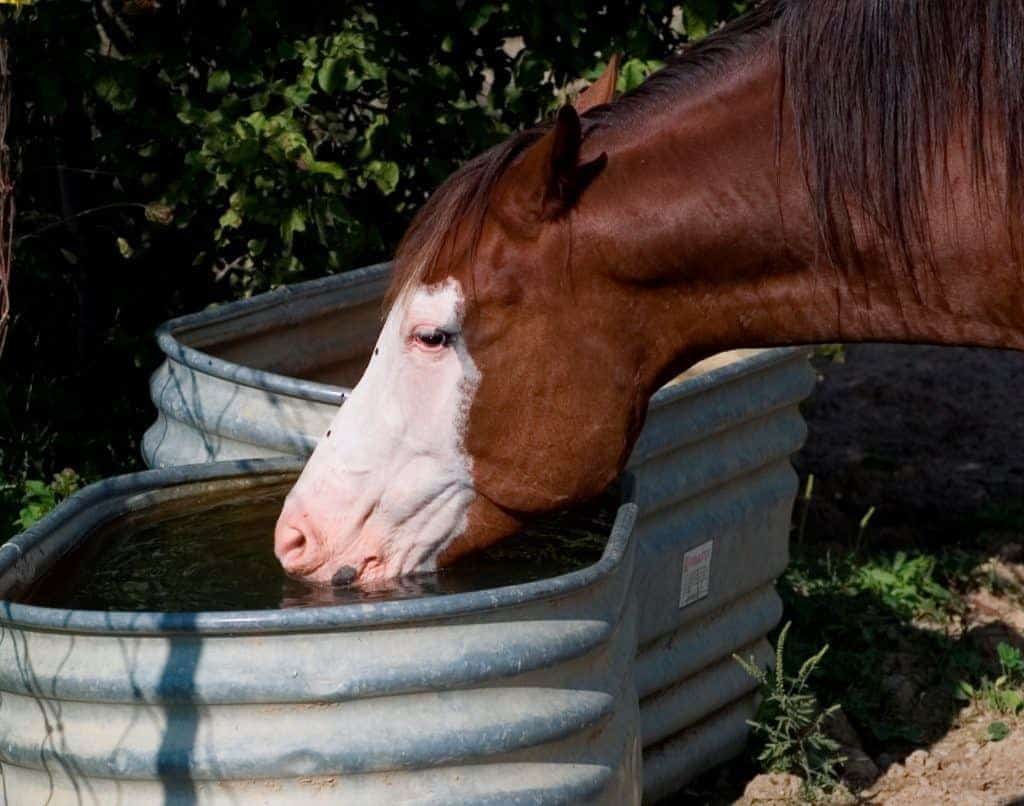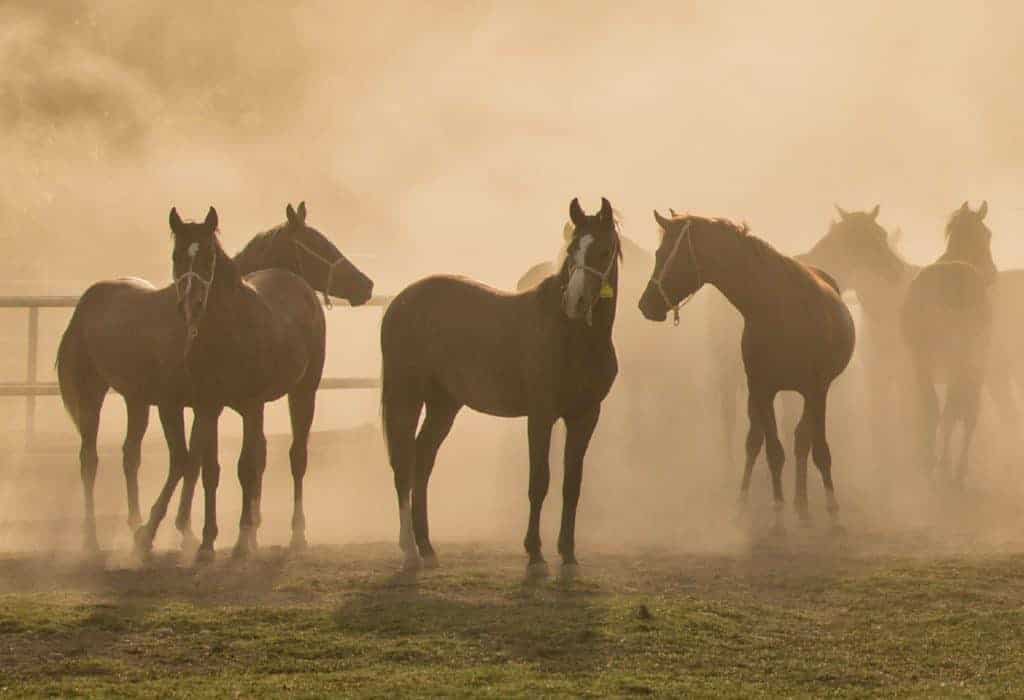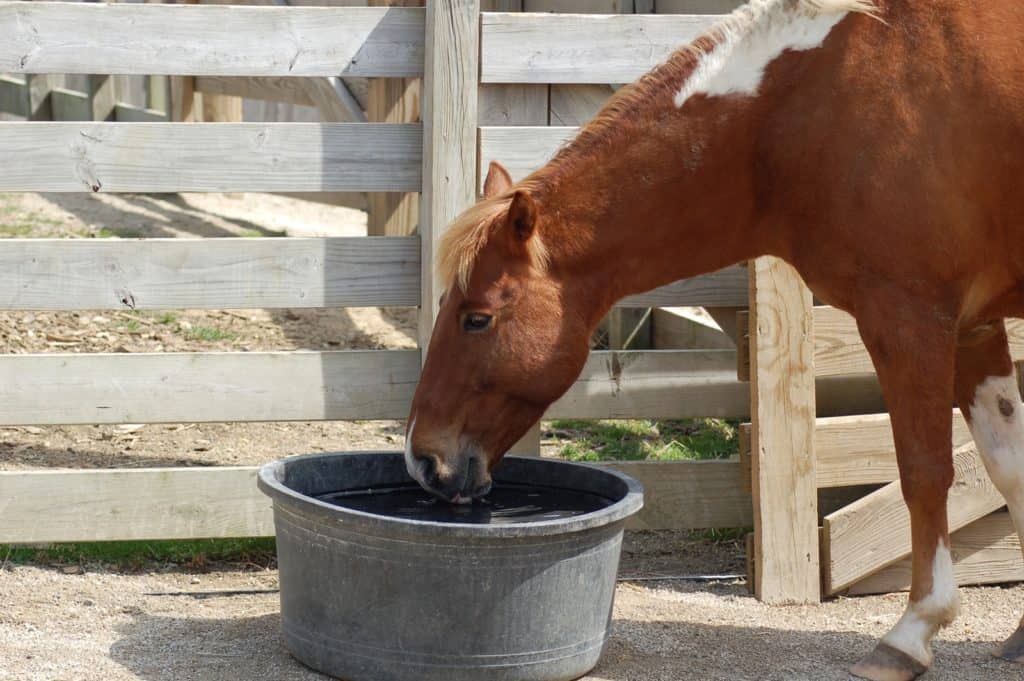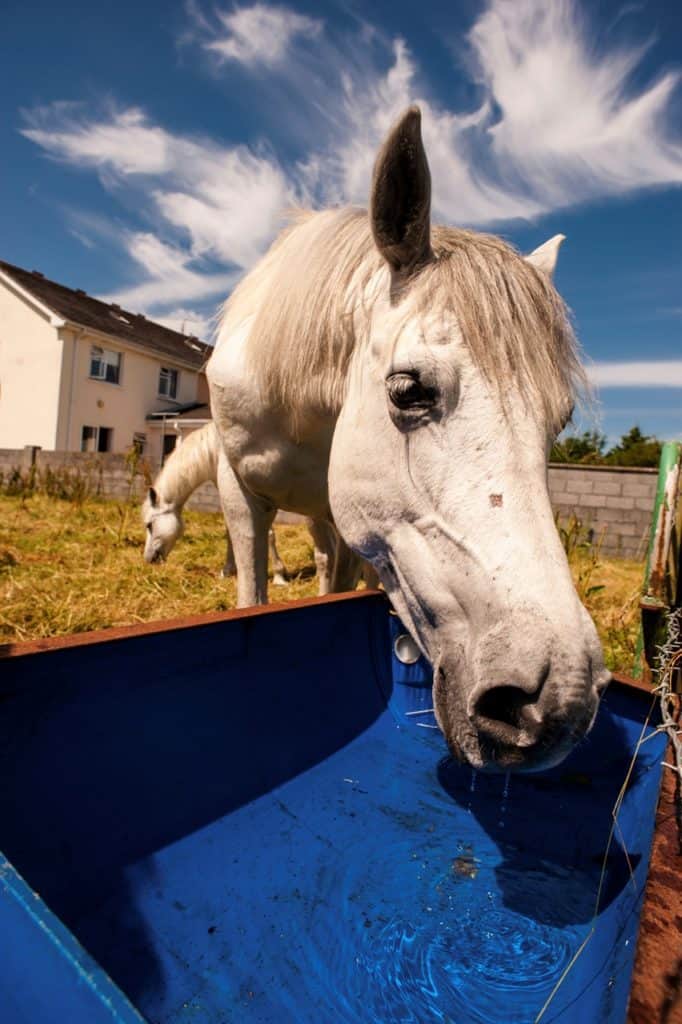
Feeding to Prevent Colic
Horses are more prone to digestive upset than other domestic animals because of how their GI tract functions.

Horses are more prone to digestive upset than other domestic animals because of how their GI tract functions.

Our nutrition expert offers tips for keeping algal blooms to a minimum in your horse’s water trough this summer.

Our staff and sources offer ways you can save time during feeding time.

Enteral and/or intravenous fluid administration can be a crucial part of supporting sick foals and horses.

Allow exercised horses to eat and drink after cooling down to restore lost water and energy, researchers say.

In some areas, water sources can contain substantial amounts of Mn, which can affect dietary needs.

Age is a number, not a disease, said Dr. Megan Shepherd. Remember this when tailoring a diet for your older horse.

Of the 556 respondents, 190 (34%) said their biggest concern is keeping horses’ water sources from freezing.

Many horses are well-equipped to live outdoors and thrive, provided certain provisions are met. Here’s what to remember.

Horses are at risk for impaction colic if they eat substantial amounts of dry matter without drinking enough water.

With cold weather comes complicating factors that could increase horses’ colic risk.

Three equine professionals offer tips for preparing your animals, facilities, and yourself for the deep freeze ahead.

Learn how rising temperatures and extreme weather events are affecting horse keeping.

Of the 1,413 respondents, 936 (66%) said their horses get water from a trough or bucket that they fill manually.

Performance horses have special nutritional needs. Here are some tips on how to get the most out of your athlete’s diet.

A lack of water in your horse’s diet can have serious consequences. Here’s what to remember.
Stay on top of the most recent Horse Health news with
"*" indicates required fields